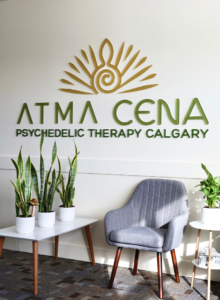National Geographic Magazine published an article titled “Psychedelic Medicine is Coming—but Who’s Going to Guide Your Trip?” to highlight the reality that there may not be enough trained therapists as soon as psychedelics become legal for treatment.
Psychedelic-assisted therapy is emerging as a promising new approach to mental health treatment. With the potential to revolutionize the way we address conditions like depression, PTSD, anxiety, and addiction, this field is rapidly gaining attention and acceptance. Here’s a closer look at what’s happening in the world of psychedelic therapy.
Personal Experiences with Psychedelic Therapy
The use of psychedelic substances in therapy is not without its challenges. Renee St.Clair, a 51-year-old attorney from San Diego, recalls a terrifying experience during a ketamine treatment for depression. Her brain seemed to disconnect from her body, floating across the room. It was the reassuring presence of a trained physician that helped her through the ordeal.
The Importance of Trained Professionals
St.Clair’s experience underscores the vital need for well-trained professionals to administer these powerful substances. With certain jurisdictions, such as Oregon, soon allowing mental health treatments with psilocybin (the active ingredient in magic mushrooms) and the FDA expected to evaluate MDMA (aka ecstasy) for treating PTSD, the urgency for proper training is growing.
Psychedelic Therapy Training Programs
With the surge in interest surrounding Psychedelic-Assisted Therapy, the landscape of training options has expanded significantly. From established universities to independent organizations, a plethora of programs are now available to those seeking to become proficient in this evolving field. Navigating this diverse array of offerings can be a daunting task, but it’s an essential one. As the demand for trained professionals continues to grow, selecting the right training program becomes a crucial decision for practitioners.
In this rapidly changing landscape, the selection of a training program should not be taken lightly. Prospective practitioners must carefully assess each program’s quality, reputation, and resources provided. This evaluation process extends beyond mere credentials; understanding the program’s curriculum, its faculty’s expertise, and its track record in producing competent professionals becomes paramount.
Promising Clinical Trials
The interest in psychedelic therapy is fueled by promising clinical trials. Preliminary results from the Multidisciplinary Association for Psychedelic Studies (MAPS) show that MDMA reduced or even eliminated PTSD in some cases. Other studies have revealed the potential of psychedelics in treating depression, anxiety, addiction, and even the fear associated with terminal diseases.
The Challenges and Future of Psychedelic Therapy
Despite the promising results, there are concerns about meeting the expected demand for trained therapists. The growth in interest is outpacing the availability of quality training programs. Additionally, the illegal status of psychedelics in many places limits the ability to provide hands-on training.
Some programs are finding creative ways to simulate the psychedelic experience, such as using ketamine or Holotropic breathwork. Others are fostering personal and emotional growth in therapists to better position them to help others.
Psychedelic-assisted therapy is an exciting and rapidly evolving field with the potential to transform mental health treatment. The successes, challenges, and ongoing developments in this area are a testament to the complexity and promise of using these powerful substances in a therapeutic context.
As the field continues to grow, the focus must remain on ensuring high-quality training, developing industry standards, and conducting further research to fully understand the potential and limitations of these treatments.
The journey towards integrating psychedelics into mainstream mental health care is just beginning, and it’s a path filled with both excitement and uncertainty. The stories of those like Renee St.Clair remind us of the profound impact these treatments can have, as well as the importance of approaching them with caution, respect, and a commitment to excellence.




